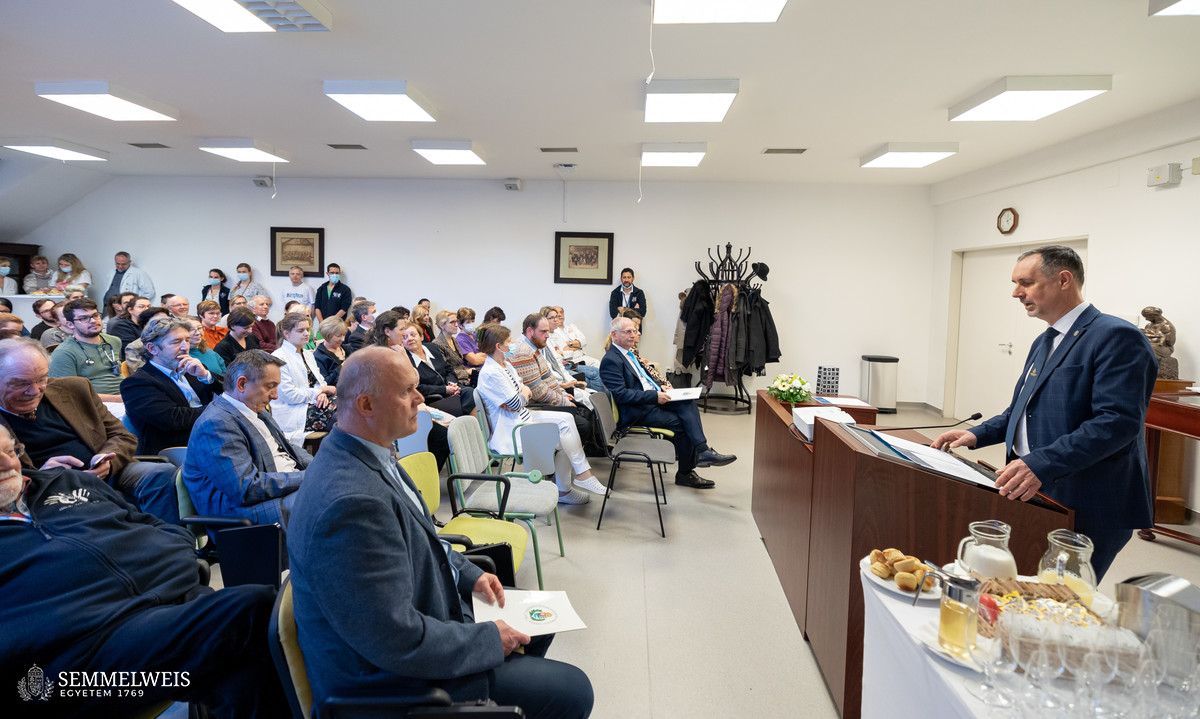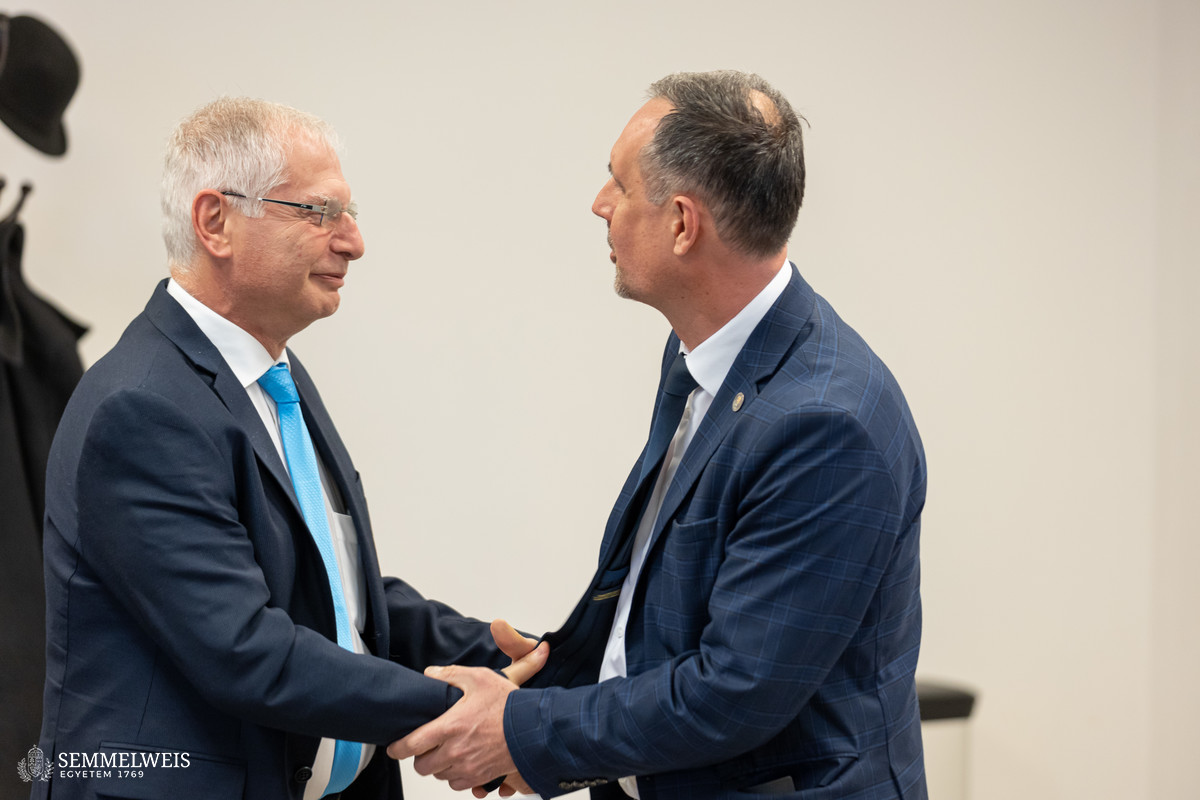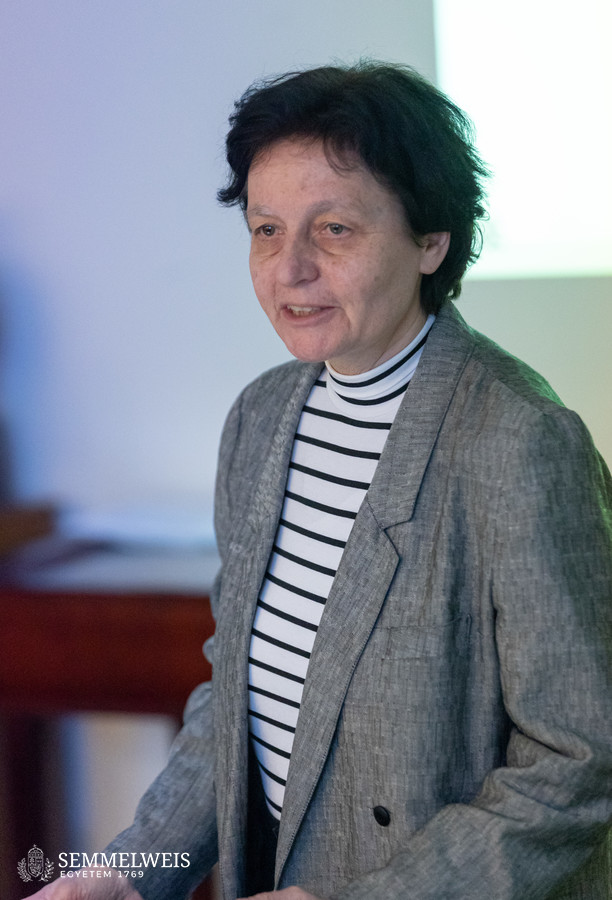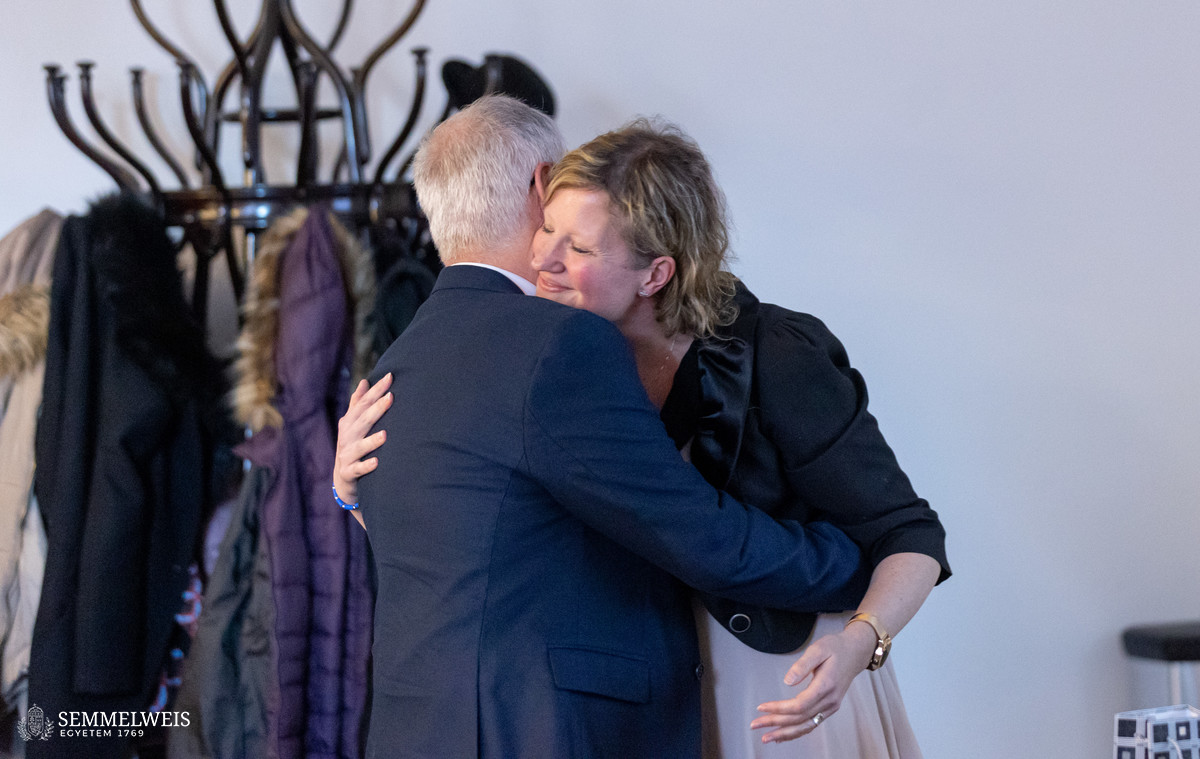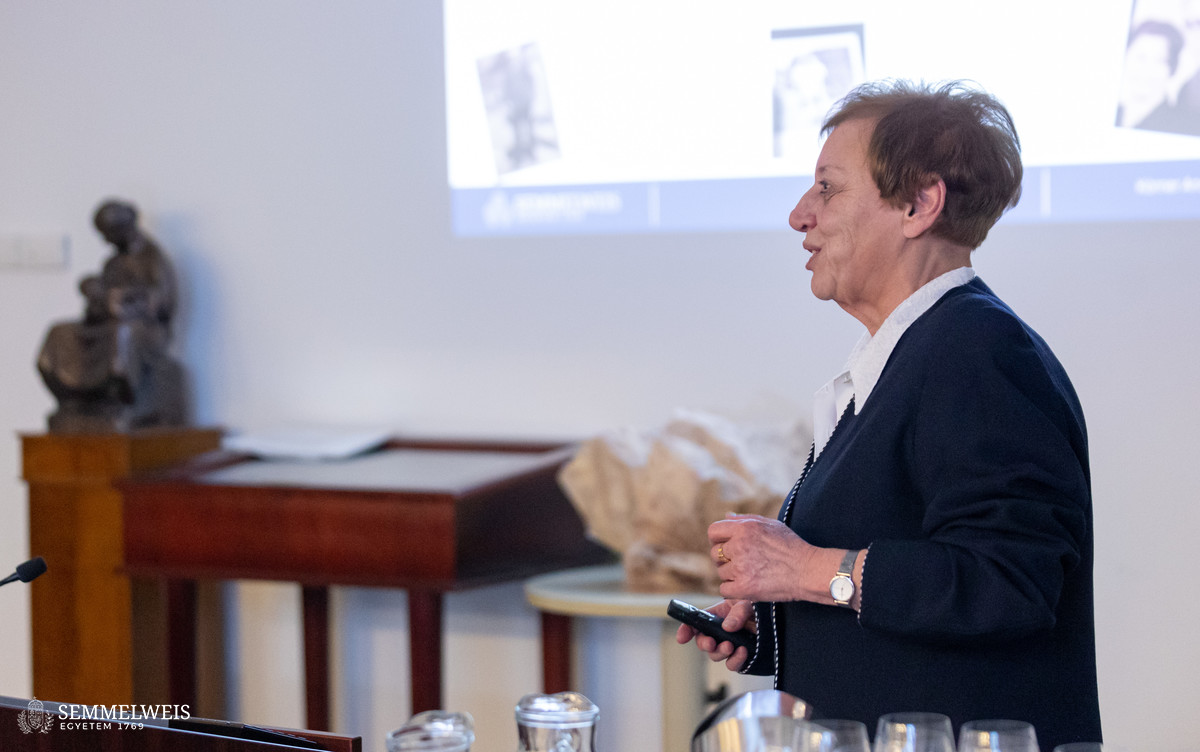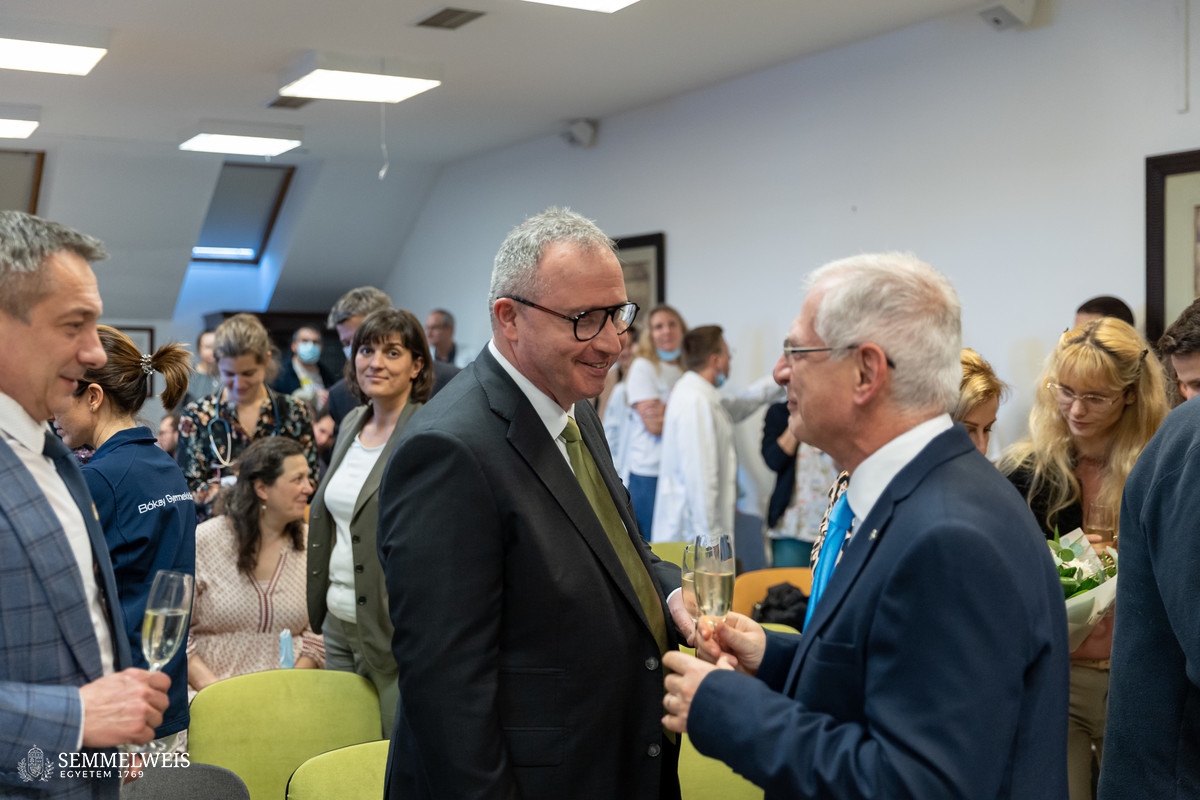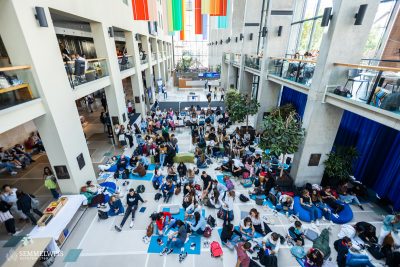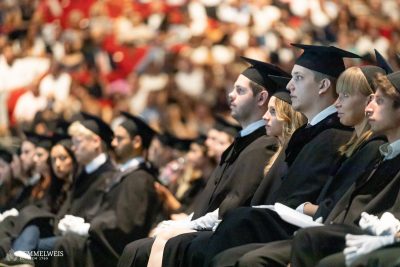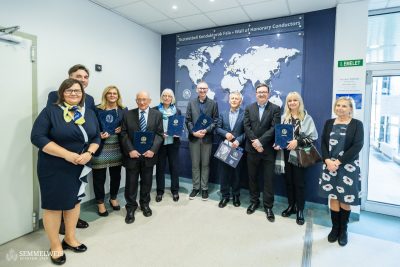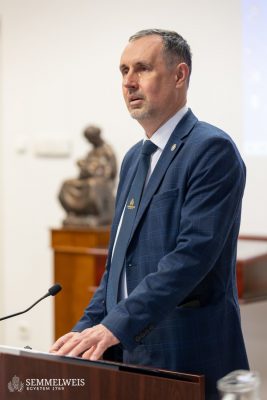 The ceremony started with a toast by Dr. Attila Szabó, Director of the Department of Pediatrics. “The celebrated professor, with his knowledge, his persistent diligence, his scientific interest and his love for pediatrics, is a true role model for his colleagues, a specialist who has created something lasting. The staff of the department are very fortunate to have this role model working alongside them, to see and know him up close,” said Dr. Attila Szabó. The director presented the professional career of Dr. András Arató, stressing that he has been working at the clinic since 1977, when he was 24 years old, and this was his first job. His interest turned early on to paediatric gastroenterology, and he built up a professional workshop with persistent hard work and diligence. He became an internationally renowned expert in this field.
The ceremony started with a toast by Dr. Attila Szabó, Director of the Department of Pediatrics. “The celebrated professor, with his knowledge, his persistent diligence, his scientific interest and his love for pediatrics, is a true role model for his colleagues, a specialist who has created something lasting. The staff of the department are very fortunate to have this role model working alongside them, to see and know him up close,” said Dr. Attila Szabó. The director presented the professional career of Dr. András Arató, stressing that he has been working at the clinic since 1977, when he was 24 years old, and this was his first job. His interest turned early on to paediatric gastroenterology, and he built up a professional workshop with persistent hard work and diligence. He became an internationally renowned expert in this field.
“First he trained himself, then he immediately provided opportunities for others, and many people owe their scientific advancement and professional success to him,” recalled the director. “Although it is customary to give a birthday present to the celebrant, over the years and decades we have received countless gifts from Dr. András Arató: daily lessons on diligence, reliability, humility and knowledge,” added Dr. Attila Szabó.
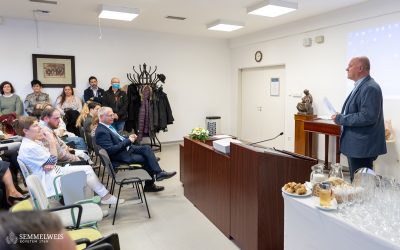 In his welcome speech, Dr. Antal Dezsőfi-Gottl, Associate Professor and Deputy Director of the Department, described in detail the stages of Dr. Arató’s professional career. He emphasized that he graduated from the Faculty of Medicine in 1977, and then passed his specialist examinations in paediatrics and gastroenterology. He has been the subject supervisor of several TDK students, but has also been involved in postgraduate training, in the practical and theoretical training of paediatric and paediatric gastroenterology trainees from the very beginning.
In his welcome speech, Dr. Antal Dezsőfi-Gottl, Associate Professor and Deputy Director of the Department, described in detail the stages of Dr. Arató’s professional career. He emphasized that he graduated from the Faculty of Medicine in 1977, and then passed his specialist examinations in paediatrics and gastroenterology. He has been the subject supervisor of several TDK students, but has also been involved in postgraduate training, in the practical and theoretical training of paediatric and paediatric gastroenterology trainees from the very beginning.
Dr. András Arató is the author of the first major textbook on paediatric gastroenterology in Hungarian (together with Dr. László Szőnyi). He has been an invited lecturer at several universities abroad, including New York, Freiburg, Brussels, Riga and Vilnius. He has introduced many new methods in the clinic and has also been an important organizer of professional conferences and congresses. Among others, he chaired the 42nd congress of ESPGHAN (European Society for Paediatric Gastroenterology Hepatology and Nutrition) in Budapest, was active in major international professional organizations and was a member of the editorial board of the Journal of Paediatric Gastroenterology and Nutrition from 2010 to 2014.
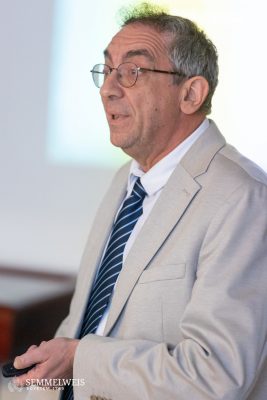 Dr. Gábor Hacsek, former fellow student of Dr. András Arató, recalled their experiences in Finland, where the professor studied the immunological mechanisms of celiac disease, milk allergy and inflammatory bowel disease at the research laboratory of the Children’s Hospital of the University of Helsinki between 1986 and 1989.
Dr. Gábor Hacsek, former fellow student of Dr. András Arató, recalled their experiences in Finland, where the professor studied the immunological mechanisms of celiac disease, milk allergy and inflammatory bowel disease at the research laboratory of the Children’s Hospital of the University of Helsinki between 1986 and 1989.
He drew attention to the great changes and developments that have taken place in the field of studies on coeliac disease and inflammatory bowel diseases in the past decades. He emphasized that the study of gamma-delta T-cells was a breakthrough in the career of Dr. András Arató, as it allowed the diagnosis of latent celiac disease.
Dr. Ilma Korponay-Szabó, Professor of the Department of Paediatrics at the University of Debrecen, said that Dr. András Arató had done a lot by spreading information about gamma-delta cells, she herself had heard about them as a young doctor, and then decided that she would like to work on this topic. She stressed that the research methods used at the time were extremely laborious, and that it was a major task to collect, organise and evaluate samples, which sheds a different light on the work the professor did at the time.
Dr. Beáta Szebeni, research fellow of the MTA-SE Pediatrics and Nephrology Research Group, recalled that she met the professor in 2003 when she was looking for a PhD topic after university: she wanted to find a topic that was closer to the clinical field than basic research. She finally chose the topic of immune-mediated intestinal diseases under the guidance of Dr. András Arató, and the professional relationship between them remained close, as she said, she owes a lot to him.
Dr. Anna Körner, retired associate professor of the Department of Pediatrics, introduced Dr. András Arató in her personal and humorous toast, bringing back memories with pictures from her childhood. She emphasized that he was always supportive and, as an enthusiastic teacher, very well prepared.
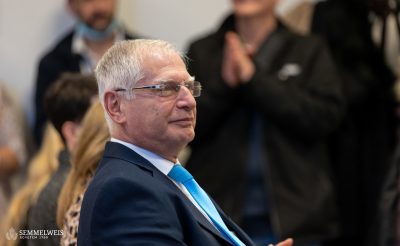 Finally, Dr. András Arató thanked the ceremony, which he said was very moving for him. “My parents valued knowledge, and as a first-generation intellectual I enjoyed great freedom,” he said. He recalled that he had worked under four directors during his more than 40 years at the clinic: Dr. Ferenc Gerlóczy was 42 years older than him, Professor Miklós Miltényi, who had made many changes to the clinic and set it on the right track, was closer to him in age, he and Tivadar Tulassay were contemporaries and worked together for about 20 years, and the current clinic director, Dr. Attila Szabó, was 16 years younger than him. He said he was grateful to have been able to work harmoniously with all the leaders.
Finally, Dr. András Arató thanked the ceremony, which he said was very moving for him. “My parents valued knowledge, and as a first-generation intellectual I enjoyed great freedom,” he said. He recalled that he had worked under four directors during his more than 40 years at the clinic: Dr. Ferenc Gerlóczy was 42 years older than him, Professor Miklós Miltényi, who had made many changes to the clinic and set it on the right track, was closer to him in age, he and Tivadar Tulassay were contemporaries and worked together for about 20 years, and the current clinic director, Dr. Attila Szabó, was 16 years younger than him. He said he was grateful to have been able to work harmoniously with all the leaders.
He gave an example of the enormous progress made over the decades: the infant mortality rate was over 70 per thousand in 1953, when he started working at the clinic, it was over 26 per thousand, and today it is around 3.5 per thousand – he said that such a huge improvement has been achieved in almost no other area. He also highlighted other important achievements, such as the creation of PIC, the start of renal dialysis and the great progress in paediatric surgery.
Péter Pogrányi
Translation: Gábor Kiss
Photo: Attila Kovács – Semmelweis University
